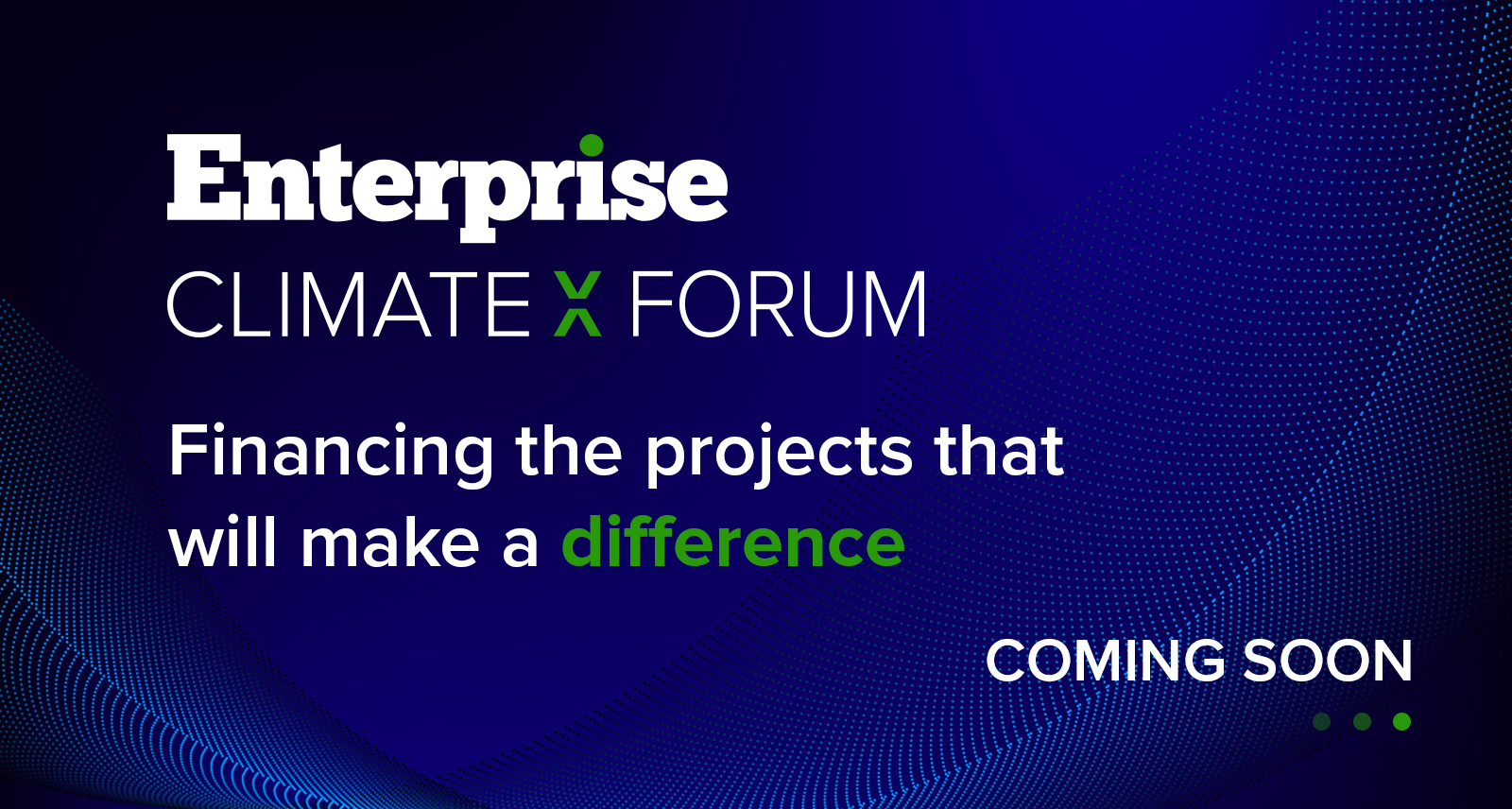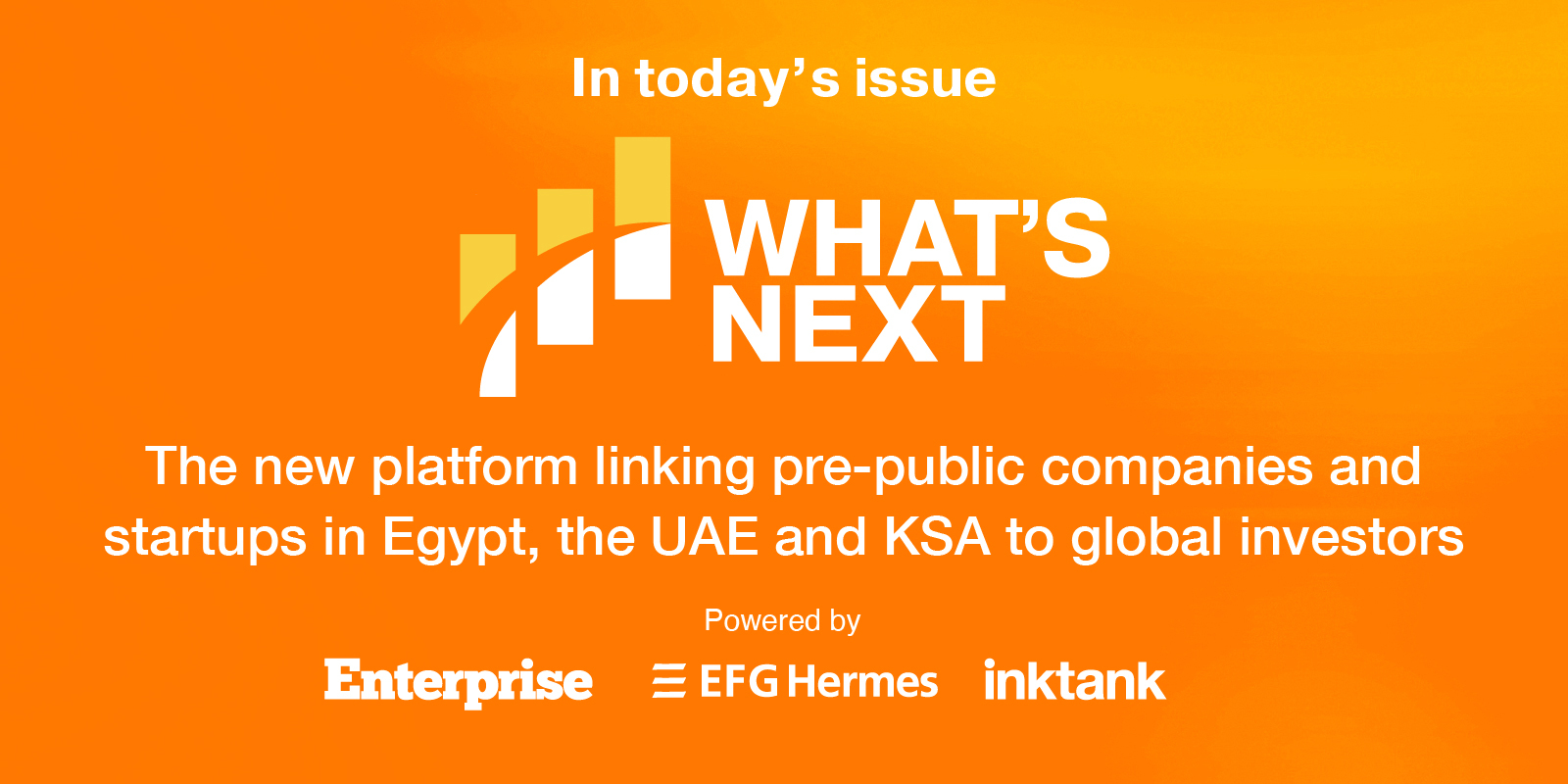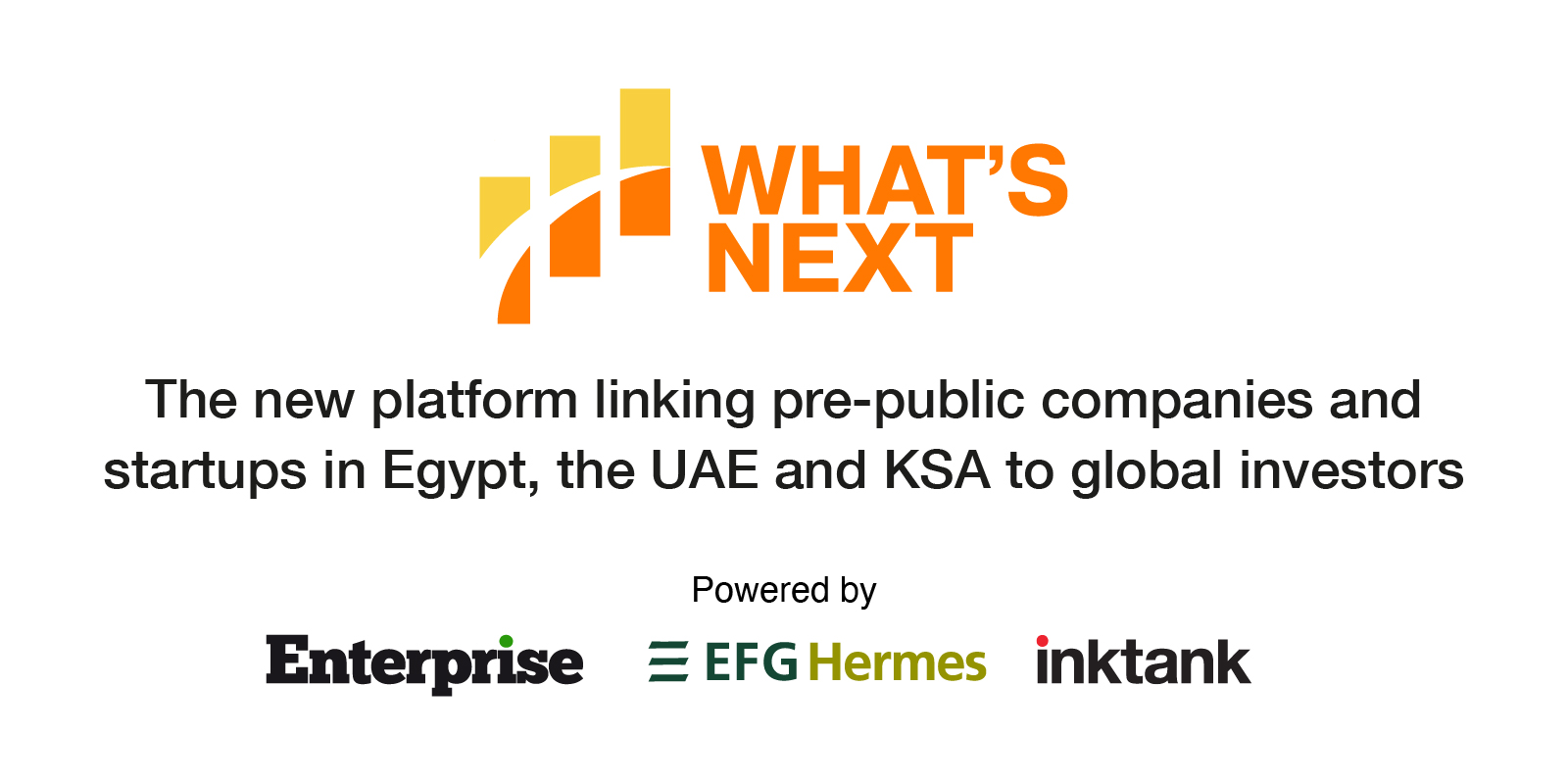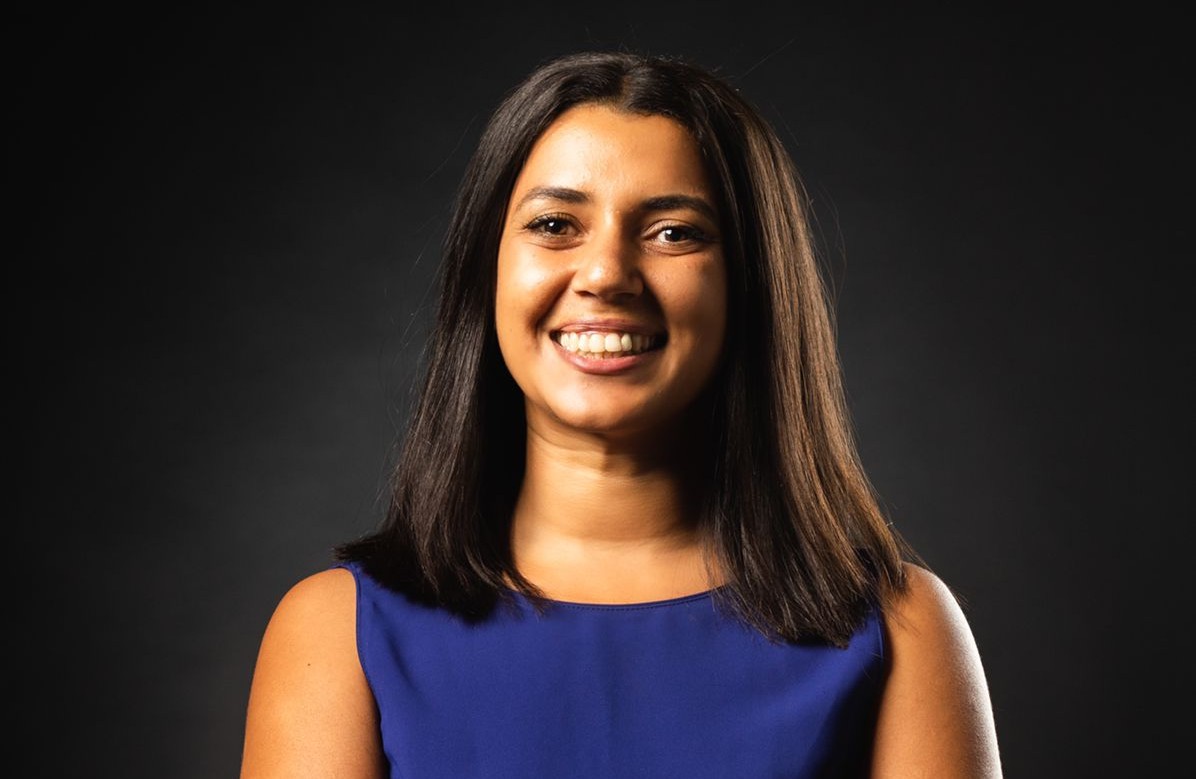- Central Bank of Egypt to raise interest rates this week. (Poll)
- B Investments hasn’t made its mind up on TotalEnergies Egypt. (M&A Watch)
- Social commerce player Brimore announces restructure in bid to reach profitability. (What We’re Tracking Today)
- Madbouly in investment talks with Qatar wealth fund, French hospital company Accor. (What We’re Tracking Today)
- Gov’t wants private sector investment in state-owned hospital. (Healthcare)
- Act Financial plans to IPO in the new year. (IPO Watch)
- Egypt wants USD 7.7-8 bn oil + gas FDI this fiscal year. (Investment Watch)
- Source Beauty sells majority stake to Egyptian Company for Cosmetics. (Startup Watch)
- Suez Canal Authority to hike transit fees by 15% next year. (Suez Canal)
- Sara Enan writes: What we can learn from the Capiter saga. (What’s Next)
- US stocks hit two month lows + investors are starting to come back to frontier-market African debt. (Planet Finance)
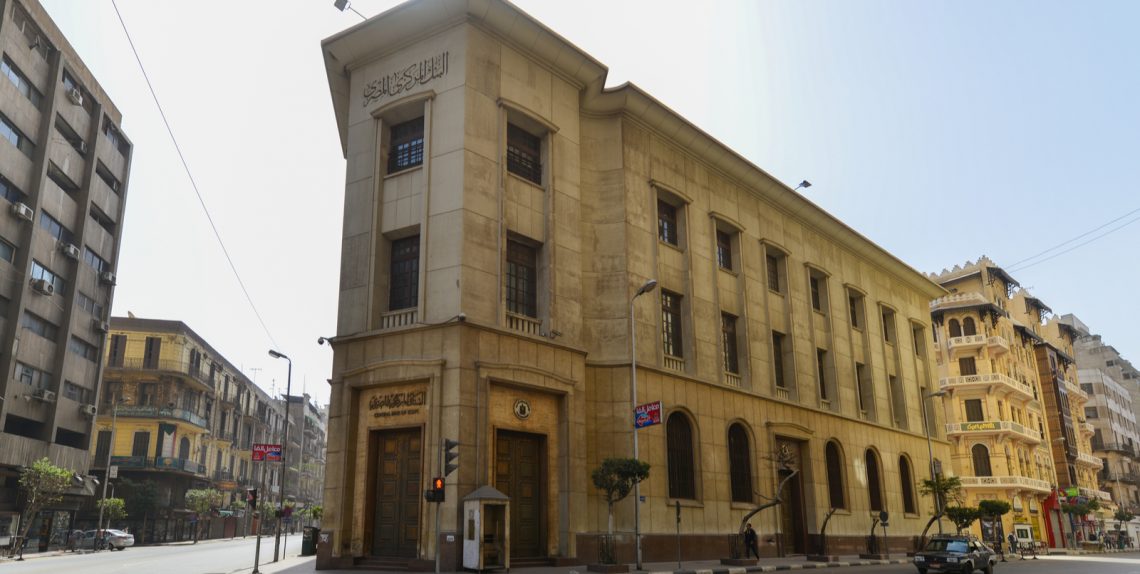
Sunday, 18 September 2022
AM — Central Bank of Egypt to raise interest rates this week
TL;DR
WHAT WE’RE TRACKING TODAY
Good morning, wonderful people, and happy Sunday. It’s a travel day for many of our readers in Egypt and outside as they head to the EFG Hermes One on One in Dubai — the first time since the start of covid-19 that the world’s premier frontier and emerging markets investor conference has taken place in person. We hope everyone attending is looking forward to it as much as we are.
IT’S A BIG DAY FOR: PLANET STARTUP, where the reckoning continues. Social commerce startup Brimore did the right thing and issued a statement (pdf) over the weekend saying that it would restructure and cut costs in a bid to reach profitability. The move comes as domestic economic growth slows — and as what was once a torrent of venture capital funding for startups has become a trickle. Brimore says it will tweak its business model, but stopped short of getting into what that means. The five-year-old company, which has backing from bold-name investors including Algebra, Endure and Fawry, also cited fallout from Russia’s invasion of Ukraine as a factor in the challenges it now faces.
Keep an eye out for more M&A on Planet Startup: We noted last year that startups acquiring new startups had become a thing. Heading into 4Q and beyond, we expect to see acquisitions of young, tech-enabled businesses pick up. Some tech and tech-enabled businesses are going to struggle with cash burn now that venture capital has significantly dried up, creating willing sellers. Even those with plenty of runway will look at a deep-pocketed suitor in new light given current market conditions. And traditional businesses with no tech edge (and, too often, zero ability to manage devs) will look at depressed asset prices and think, “Hmm, why not.”
You’re also going to see startups take investment from traditional companies without fully selling themselves. Case in point: Source Beauty. The four-year-old online beauty platform with some 60k users has sold a majority stake to the Egyptian Company for Cosmetics (ECC). The transaction will see Source Beauty founder Lydia Schoonderbeek become ECC’s chief creative officer while remaining CEO of Source Beauty, as we note in this morning’s news well, below.
WATCH THIS SPACE- Are the leftists going to (try to) monkey with the backbone of the Sisi administration’s privatization policy? Wafdist MP Ayman Mehasseb, the rapporteur for the National Dialogue’s subcommittee on public investment and state ownership, is suggesting just that, saying in a meeting with journalists yesterday that the document outlining the sectors of the economy in which the state will and will not be involved “is not immune from change because it is not a constitution” and could be changed “without hesitation” because it “concerns public investment and state ownership priorities in the coming stages.”
The catch: We’re not entirely certain that members of the subcommittee have the authority to rewrite the document, which came out of very good thinking from the folks at the Planning Ministry. The state ownership policy is a cornerstone of President Abdel Fattah El Sisi’s goal of attracting USD 10 bn in private-sector investment per year in each of the coming four years. The 11-party opposition Egyptian Civil Democratic Movement has recently called for debate on the state ownership policy as part of the ongoing dialogue process.
WELCOME TO INTEREST RATE WEEK-
It’s interest rate week at home and abroad: The Central Bank of Egypt looks set to go through with its third rate hike of 2022 when it holds its policy meeting on Thursday. Six of seven analysts and economists we spoke to last week see the Monetary Policy Committee raising rates as inflation rises and the EGP continues to weaken. We have more on that in this morning’s news well, below.
The Fed will announce its rate decision the day before: The Federal Reserve will hold its two-day policy meeting on Tuesday and Wednesday this week — and a third jumbo 75-bps hike looks all but certain following last week’s disappointing inflation data.
Where does it stop? A Financial Times survey of economists sees the Fed raising rates beyond 4% and holding them there into 2024. Almost 70% of the 44 economists see rates rise to 4-5% while 20% think they’ll need to go further before policymakers get a handle on inflation.
Expect more of this in the coming weeks as rates rise further: Expectations for a more hawkish Fed has led Goldman Sachs to downgrade its growth outlook for the US economy for next year, according to Bloomberg. The investment bank now sees the economy growing at a 1.1% clip in 2023, down from its previous 1.5% forecast. Its 2022 forecast was left unchanged at 0%.
WATCH THIS SPACE #1- Prime Minister Moustafa Madbouly held talks with representatives from the Qatar Investment Authority (QIA) and French hotel group Accor on potential investment in the hospitality and tourism sectors, cabinet said in a statement Saturday. This came a few days after President Abdel Fattah El Sisi and other cabinet ministers traveled to Qatar to discuss investments.
REMEMBER- Qatar has pledged to invest USD 5 bn in Egypt, joining Saudi Arabia and the UAE to help shield the country from the fallout from the war in Ukraine. Egypt and Qatar have reportedly been in talks for weeks over potential investments from Qatari firms and the QIA but nothing has yet been announced.
WATCH THIS SPACE #2- Al Baraka Bank is planning to make an offer to acquire 100% First Investment Development Company for EGP 5.30 per share, according to a document reportedly seen by Al Shorouk. Expect a disclosure to land on the EGX later today.
HAPPENING TODAY-
Shoukry in New York: Foreign Minister Sameh Shoukry is traveling to New York today to participate in the high-level meetings ahead of the UN General Assembly session, which starts tomorrow, the Foreign Ministry said in a statement yesterday.
Indian Defense Minister Rajnath Singh will land in Cairo today for a three-day visit focused on bolstering defense ties, ” the minister wrote on social media.
Today is the deadline for investors to apply for funding under the Planning Ministry’s Smart Green Governorates initiative. More detail here.
Egyptian Securities Federation registration: Brokerage firms, asset managers and financial advisors are required to register to join the Egyptian Securities Federation by today.
|
DATA POINTS-
#1- Remittances from Egyptians abroad fell 15% y-o-y in July to USD 2.38 bn, according to fresh central bank figures (pdf). Flows were down 15% m-o-m from USD 2.8 bn in June. Remittances hit a record high for the second year running in FY 2021-2022 as surging oil prices supported transfers coming from the Gulf. Remittances are a key source of hard currency for Egypt and the outlook is strong when you consider that most Egyptian expats work in the GCC, where pundits expect there will be an extra USD 1.3 tn in liquidity sloshing around over the next year.
#2- More than 1.4k exporters applied to join the fifth phase of the export subsidy program, according to a Finance Ministry statement. Exporters had until 15 September to apply to the program, which will pay out a total EGP 10 bn in overdue subsidies to exporters, with payments to be made on 1 October and 1 December. The program allows exporters to receive their subsidies in a single payment rather than in installments over four to five years, in return for a haircut.
#3- Cheaper travel on the LRT: Passes and individual tickets for the new Light Rail Train (LRT) are now up to 50% cheaper, the Transport Ministry said in a statement. All subscription prices have been cut by 50%, while the price of tickets for the line between Adly Mansour Central Station and the new administrative capital was reduced by 30-40%. Minibuses transporting travelers from suburbs to LRT stations are running without charge for two weeks, beginning yesterday. The discounts come ahead of the new academic year and as the government prepares to move ministries to the new capital.
ROAD TO COP27- The dilemma of climate finance: Climate financing represents a “dilemma”, given a sizable gap between what is being offered and what is necessary to implement climate-related projects, Egypt’s high-level climate champion Mahmoud Mohieldin said at the Egypt- and UN-led regional climate roundtable in Beirut Thursday. “It’s necessary for Arab governments to link public budgets to sustainable development goals as public finance could be considered the cornerstone of financing development and climate action including adaptation measures,” he said, adding that investments and partnerships should be used to finance projects rather than debt.
THE BIG STORY ABROAD- It’s a mixed bag in the global front pages this morning: Reuters, the Associated Press and the New York Times are reporting the latest from Ukraine, Bloomberg is covering last week’s turmoil in the financial markets (more on that in this morning’s Planet Finance, below), and the Wall Street Journal is reporting on increasing competition among stablecoin players as interest rates rise.
CIRCLE YOUR CALENDAR-
HSBC is hosting an energy transition webinar series next Tuesday-Thursday, 27-29 September. The series will look at the “latest climate analysis in relation to the global energy market and transition to net zero” in six different sessions covering energy security, what is required to ensure the success of COP27, financing and investment needs for the energy transition, and the scaling up of renewables in the region, among other topics. You can register for the series here.
Intellectual property strategy coming this week: Egypt will launch its intellectual property strategy this Wednesday, Prime Minister Moustafa Madbouly said on Wednesday, according to a cabinet statement. World Intellectual Property Organization (WIPO) Director-General Daren Tang will make an appearance at a ceremony being put on to launch the program, the PM said.
Winter is coming: Shops will shift to winter hours on Friday, 30 September, Youm7 reports. Shops and malls will close one hour earlier at 10pm (11pm on Thursdays, Fridays and national holidays) while cafes and restaurants will shutter at midnight rather than 1am. The government first introduced seasonal retail opening hours in 2020.
Check out our full calendar on the web for a comprehensive listing of upcoming news events, national holidays and news triggers.
*** It’s What’s Next day: We have our weekly deep-dive into what makes and shapes pre-listed companies and startups in Egypt, the UAE and KSA, touching on investment trends, future sector insights and growth journeys.
In today’s issue: A guest op-ed by Sara Enan, senior associate at VentureSouq, who shares her thoughts on the Capiter debacle and what it means for the local startup scene.
The Somabay Endurance Festival, organized by The TriFactory, returns this month for the fourth time. Featuring four different races that combine swimming, cycling, and running, as well as the 1K Kids Race (ages 5-10) and the 10K Race, the Somabay Endurance Festival has got something for everyone. Taking place from 29 September though 1 October, spots are running out for Egypt’s favorite multi-sport event. To find out more and sign up, head to www.thetrifactory.com/somabay.
POLL
CBE to hike rates in September meeting -POLL
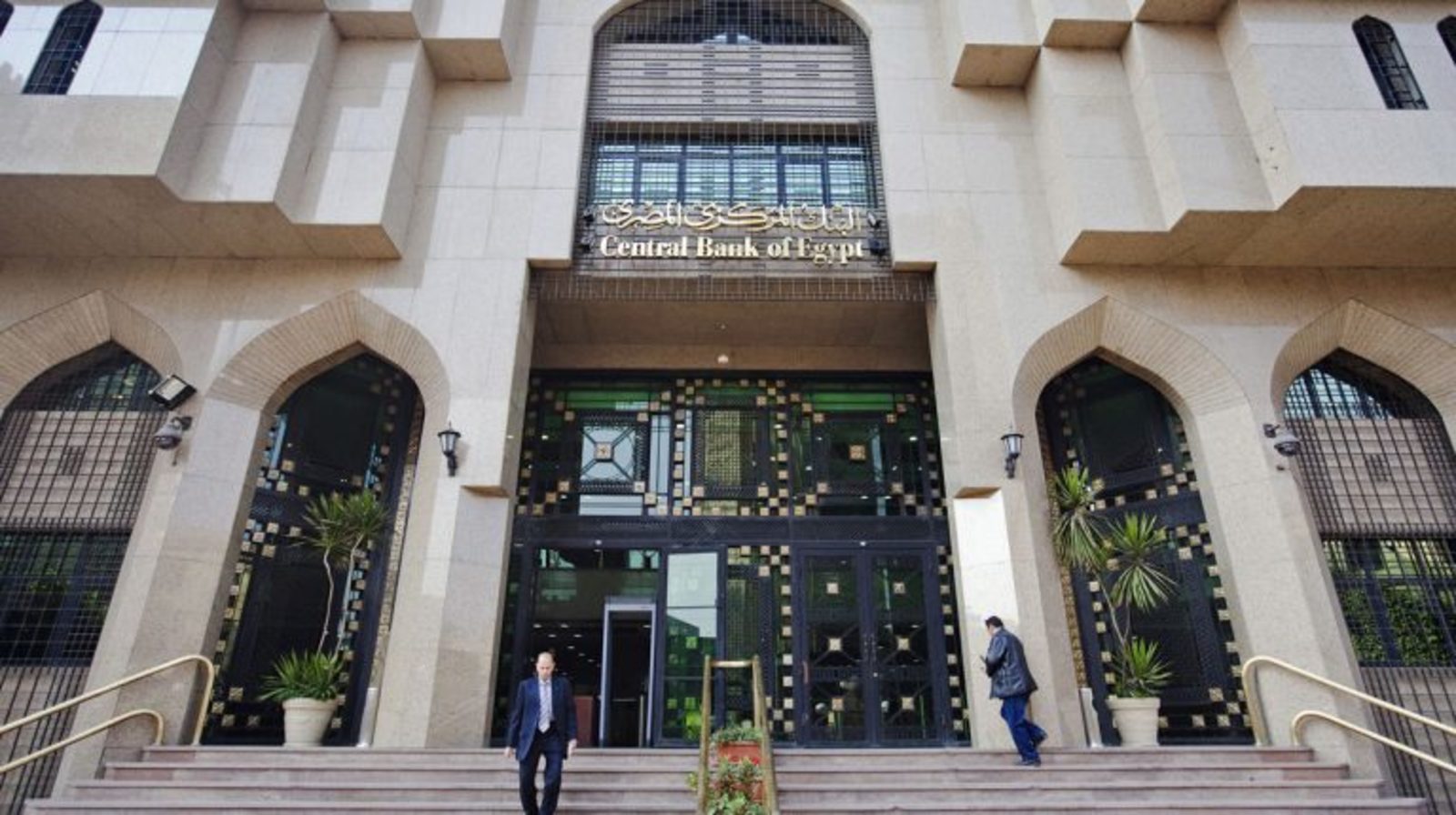
The Central Bank of Egypt is likely to raise interest rates when it meets on Thursday in a bid to tame inflation and support the local currency, according to our regular interest rate poll. Six of seven analysts and economists we surveyed see the Monetary Policy Committee hiking rates for the third time this year, pushing borrowing costs back towards pre-covid levels.
Where do rates stand: The overnight deposit rate is at 11.25% and the lending rate 12.25%, while the main operation and disc. rates are at 11.75%. The CBE has hiked rates by 300 bps since March in a bid to control rising inflation and bring foreign investors back into the local market, but has left them unchanged in the past two meetings in June and August.
Weaker EGP + inflationary pressures to force the central bank’s hand: “Given that the Federal Reserve is also planning a large rate hike in September, the CBE should have little choice but to raise its rate at its next meeting to tame both inflation and external growing risks,” economist Mona Bedeir said. She expects the MPC to raise rates by 100 bps, but tells us that “we wouldn’t be surprised if it goes higher.” Consumer prices, which grew in August at a rate not seen since November 2018, will continue to accelerate for the remainder of the year, she said.
A pre-emptive move: “In light of what we’re seeing [in terms of] a gradual devaluation, and officials’ statements on nearing an agreement with the IMF, which we expect would be accompanied by increased inflationary pressures due to a deval at a greater pace, we expect the CBE to raise interest rates by 100-200 bps this week,” Arqaam Capital Associate Director Noaman Khalid told Enterprise. Khalid expects rates to rise by 300 bps and inflation to reach 17-18% by the end of this year.
A gradual devaluation could keep the central bank from opting for a large hike: The gradual weakening of the EGP instead of a sudden devolution in March makes it more likely the central bank will go for a limited 100-bps increase, instead of an aggressive hike, Amr Elalfy, head of research at Prime Holding, told Enterprise. This doesn’t require a hawkish stance on monetary policy due to its negative impact on debt servicing costs and investments generally, he said. Elalfy sees the central bank raising interest rates by 200 bps by the end of the year, including another 100 bps hike in November.
Some think it’ll go bigger: Hany Geneina, a long-time market watcher who is now an adjunct professor of business administration at AUC, sees the MPC raising rates by at least 2%, with a return of 18% certificates of deposit (CDs) to curb inflation — which he expects to jump to 20% towards the end of the year — and dollarization that will accompany a currency float. Banking expert Hany Aboul Fotouh, a veteran of CI Capital, Arab Banking Corporation, and HSBC, predicts a 100-150-bps hike. He also says the central bank will act to prevent dollarization as the currency weakens.
Less is more: Capital Economics believes higher inflation data, which would be triggered by a more flexible exchange rate, would see the CBE resuming its tightening cycle with a 50 bps hike. “Beyond that, we expect a further 100 bps of rate increases by the end of this year, which is more tightening than the consensus currently expects,” Capital Economics MENA Economist, James Swanston wrote in a note.
Not everyone agrees: “Despite the real interest rate remaining in negative territory, we still believe it’s best to keep interest rates unchanged for the coming period,” said Al Ahly Pharos’ Esraa Ahmed. “Inflation rates are not expected to significantly increase in the coming period, especially that most of the shocks caused by external conditions have already been absorbed.”
M&A WATCH
B Investments hasn’t made its mind up on TotalEnergies Egypt

B Investments has not yet decided on whether to preempt Adnoc’s bid to acquire TotalEnergies Egypt. The company’s board said on Thursday in a regulatory filing (pdf) that it was “not in a position to respond” by a 15 September deadline, citing “unresolved legal issues related to the validity of the transfer notice” from current owner TotalEnergies Marketing Afrique (TEMA). B Investments owns a 15.4% stake in TotalEnergies Egypt, giving it the right to exercise a right of first refusal in Adnoc’s acquisition bid and acquire TEMA’s 34.6% stake itself. The company can also allow Adnoc to proceed with the acquisition.
What’s next: B Investments is now in discussions with TEMA over the transfer notice, the disclosure says. B Investments’ IR head, Omar El Labban, declined to provide further details on the nature of the legal issues or a prospective timeline.
HEALTHCARE
Gov’t wants private sector investment in state-owned hospital

The government wants to attract private sector investment to state-owned Heliopolis Hospital under a wider plan to open up the healthcare sector to private-sector players, Health Ministry spokesperson Hossam Abdel Ghaffar told Enterprise. He clarified earlier statements reported by Bloomberg Asharq last week on the government planning investments in at least three-state owned hospitals, also including the Coptic and Sheraton hospitals. “We’re only talking about Heliopolis Hospital now, which is part of five hospitals under the Egypt Health Authority,” he said.
No exit: The ministry hasn’t settled on how it plans to bring private sector companies into the hospital’s operations but stressed that it will not constitute an exit by the state. “There are only ideas,” he said.
In context: The offering comes as the government looks to double private sector participation in the economy over the next three years and exit as many as 79 industries. The strategy aims to raise USD 40 bn over the next four years by selling stakes in state-owned assets to local and international investors. An early draft of the state ownership document listed healthcare as a strategic sector in which the government wants to keep a strong presence, though it still wants to see the private sector increase its involvement.
There’s a whole lot of privatization in the works: The Sovereign Fund of Egypt (SFE) in recent weeks set up a pre-IPO fund to offer stakes in state-owned companies to “strategic investors and different sovereign wealth funds” ahead of listing them on the bourse. The fund should in the coming weeks announce a first USD 2.5-3 bn tranche of stake sales, part of a wider program worth as much as USD 6 bn.
Reminder: Stake sales + relying on strategic investors is the way forward: Market turbulence amid tough global economic conditions has made 2022 less than ideal for new fr-meds.net, leading the SFE to push forward with a new strategy relying on private sales to strategic and other anchor investors. The Madbouly government has been planning to sell part or all of as many as 10 state-owned and two military-owned companies this year and has previously signaled that it is open to both stake sales and IPOs, all depending on market conditions and individual investor interest.
IPO WATCH
Act Financial plans to IPO in the new year

Act Financial aims to offer up to a 40% stake on the EGX by early 2023, Managing Partner and Co-Founder Mostafa Abdel Aziz tells Enterprise.
Financial advisors TBA: Act Financial has appointed Matouk Bassiouny & Hennawy as its legal counsel and is still in talks with financial advisors for the offering, Abdel Aziz said.
2023 is looking better than 2022 right now: Several companies have postponed plans to debut on the EGX this year due to market volatility. Banque du Caire and Aman said in July they had pressed pause on their IPOs in July and will wait until conditions improve before moving forward with share sales.
Acquisition plans: Act Financial intends to increase its stakes in listed companies to between 5% and 20% and diversify its investments across various sectors. It will increase its direct investment and co-investment portfolio threefold from EGP 1.5 bn to EGP 4-4.5 bn by 2024, by increasing current stakes and working with Gulf investors on new buys, Abdel Aziz said. Act Financial currently owns stakes in four EGX-listed companies in the industrial and pharma sectors, and targets holdings of 5-20% in listed firms, he added.
SME and real estate funds in the pipeline: Act Financial is planning to launch an SME fund with an initial capital of EGP 1 bn, Abdel Aziz said. The fund will focus on food, logistics, and healthcare firms in the short term, before branching out to other sectors. A real estate investment fund will follow at a later stage with an initial capital of EGP 2 bn, he added.
Act was heavily in the news in the second half of 2020 and into 2021 as it bought deep into SODIC, exiting when Aldar and ADQ acquired the upmarket realtor.
Business leaders need to dig deeper digitally to personalize customer experience strategies
Investing in personalization and cloud communication is not without its challenges. Brands need to delve into data analysis to carve out a journey that suits both the business and its customers.
Identifying the target audience and gathering data are all well and good, but if data quality, optimized analysis tools, and effective delivery channels aren’t there, then your personalization journey is going to be a short one.
Embracing a customer-centric approach requires an investment in infrastructure, technology, resources, and — above all else — a desire from leaders to adopt them.
Tap or click here to learn more about what Infobip Enterprise Team Lead Aida Durmić believes are the challenges ahead for leaders looking to enhance the customer experience.
INVESTMENT WATCH
Egypt wants USD 7.7-8 bn oil + gas FDI this fiscal year

Egypt wants to attract USD 7.7-8 bn in foreign investment into the oil and gas sector in the current fiscal year, Oil Minister Tarek El Molla told Bloomberg Asharq. This would raise the proportion of foreign investment in the sector to 40% from 35%, the minister said. Foreign companies invested USD 5.7 bn during FY 2021-2022.
On Qatar: Egypt is cooperating with QatarEnergy in several concession areas for exploration in the Mediterranean and Red Sea, the minister said. El Molla traveled to Qatar last week alongside President Abdel Fattah El Sisi, though it remains unclear who he met with during the trip. Qatar Energy has deepened its involvement in Egypt’s oil and gas sector, acquiring a 40% stake in an exploration block in the Mediterranean earlier this year.
We’re going to need to wait a little longer to be self-sufficient in refined fuels: The ministry’s ambition to become self-sufficient in petroleum products by 2023 could be delayed due to the global crisis triggered by Russia’s invasion of Ukraine, El Molla told CNBC in a separate interview. Egypt had set 2023 as its year to achieve self-sufficiency in refined fuels, thanks to large-scale upgrades to oil refineries and new facilities. The 2018 discovery of the supergiant Zohr gas field — the Mediterranean’s largest — allowed us to pull the plug on gas imports.
STARTUP WATCH
Source Beauty sells majority stake to Egyptian Company for Cosmetics
Egyptian Company for Cosmetics (ECC) has acquired a majority stake in Egyptian online beauty store Source Beauty, according to a joint statement (pdf) out yesterday. The companies didn’t disclose the size of the stake or how much ECC invested in the business.
About the company: Launched in 2018, Source Beauty is an online beauty marketplace offering products from more than 85 local and international brands, and has 60k users. ECC — which counts Lorax Capital Partners among its minority shareholders — manufactures beauty and personal care products and owns haircare and skincare company Bobana and cosmeceuticals player Infinity Clinic Pharma.
No change at the top: Lydia Schoonderbeek, founder and CEO of Source Beauty, will continue in her role and also serve as ECC’s chief creative officer.
ADVISORS- Al Tamimi and HVK Stevens acted as local and international counsel to ECC while Van Campen Liem advised Source Beauty.
SUEZ CANAL
Suez Canal Authority to hike transit fees by 15% next year

Transiting the Suez Canal is getting pricier next year: Fees for most vessels crossing the Suez Canal will rise 15% starting 1 January 2023, Suez Canal Authority (SCA) Chairman Osama Rabie said in a statement Saturday.
The exceptions: The SCA will hike rates for dry bulk ships and cruise ships by 10%, he said.
“Inevitable and necessary”: Rabie said the price hikes come due to increased energy prices, freight rates and daily tanker time-charter rates. “Raising transit tolls is a necessity to face the impact of the current global inflation on the increased cost of navigational services in the canal,” he said.
Suez Canal revenues have reached record highs in recent months: Revenues hit a record USD 7 bn in FY 2021-2022 and hit a monthly all-time high of USD 744.8 mn in July.
We really need the revenue right now: The country is struggling to access hard currency after the fallout from the Ukraine war and volatility in global financial markets triggered significant foreign outflows, leaving us with a widening current account deficit.
The story’s getting coverage in foreign press: Reuters | Associated Press | Xinhua.
MOVES
President Abdel Fattah El Sisi received the credentials of 13 new ambassadors yesterday, Ittihadiya said in a statement, marking the beginning of their diplomatic mission in the country. Among the notable newcomers were the ambassadors for Ethiopia, Cyprus, Kuwait, Spain and Ukraine.
Cabinet gets a new secretary general: Maj. Gen. Osama Saad was appointed as cabinet’s secretary general for a one-year term by President Abdel Fattah El Sisi, according to a decision published in the Official Gazette. Saad succeeds Atef Abdel Fattah, who had held the position since 2016.
IDA gets a (temporary) new boss: Mohamed Abdel Karim, the executive director of the Industrial Modernization Center (IMC), has been appointed as acting head of the Industrial Development Authority (IDA) for a year or until a new board is formed, Masrawy reported, citing a decree by the Cabinet. Abdel Karim succeeds Mohamed El Zallat, who had headed the organization since August 2020.
LAST NIGHT’S TALK SHOWS
It’s a big week ahead on the macro front: The Central Bank of Egypt’s interest rate meeting and what it means for the EGP was a big topic of conversation on the airwaves last night. Among the talking heads giving the story coverage was Kelma Akhira’s Lamees El Hadidi (watch, runtime: 11:41), who discussed the “notable” daily weakening of the EGP against the USD since mid August, with the EGP slipping c. 20 piasters against the greenback over the past 10 days. “More is expected in the coming days,” she said, adding that the current rate doesn’t reflect its real value.
Analysts gave their two cents: Economist Medhat Nafea told Yahduth Fi Masr (watch, runtime: 3:26) that allowing the EGP to slide closer to its real value would help attract foreign inflows. Nafea joined Team Gradual, arguing the importance of avoiding shocks to the economy. He also spoke of the importance of remittances by Egyptians living abroad as one of the key sources of foreign currency (watch, runtime: 5:26). “It alleviates the pressure on hard currency [used] for imports. It is directly linked to how far the EGP can go down against the USD,” he said.
El Sisi talks to King Charles: The president’s phone call with the UK’s new monarch, Charles III, received widespread coverage on the airwaves, including on Masaa DMC (watch, runtime: 1:30), Al Hayah Al Youm (watch, runtime: 1:04) and Ala Mas’ouleety (watch, runtime: 1:46).
Egypt began disbursing on Thursday monthly emergency aid for beneficiaries of the Takaful and Karama program under the state’s efforts to protect vulnerable people against the rising cost of living. (Al Hayah Al Youm | watch, runtime: 3:03)
EGYPT IN THE NEWS
On a slow morning in the foreign press, Egypt and Greece’s 3 GW electricity interconnector is getting the most attention: Euronews and Africa News are both looking at the EUR 3.5 bn GREGY project, which will supply Europe electricity as it transition away from Russian fossil fuels amid a historic energy crisis. The project is being led by Greek infrastructure developer Copelouzos, which will also work with Egypt to install 9.5 GW of renewable energy generation capacity for export to Europe.
ALSO ON OUR RADAR
Wheat suppliers must register on Egycomex by November: State grain buyer GASC has sent a letter to wheat traders saying that from 1 November it will only buy from suppliers registered on our new Egycomex commodities exchange, Reuters reports. The move comes as GASC pivots from public tenders to direct purchases to secure wheat on the international markets, which were thrown into disarray earlier this year over shortages spurred by the outbreak of war in Ukraine.
What we don’t know: Whether global grain suppliers and / or their local agents need to sign up.
Egycomex? The commodities exchange has been in the works since 2018 and will eventually allow traders to buy and sell wheat, oil, sugar, rice, gold, steel, and cotton. Last we heard, it was set to go live before year end.
PLANET FINANCE
Another grim week for US equities: The three major US stock indices dropped to two-month lows on intensified recession fears at the end of last week, Reuters reports. Markets plunged on warnings from FedEx of an economic slowdown as it pulled its earnings forecast, following hotter than expected August inflation data earlier in the week. The S&P 500 was down 4.8% for the week, while the tech-heavy Nasdaq dropped 5.5%, marking their worst weekly performances since June. The Dow Jones Industrial was down 4.1%.
The S&P 500 closed below a key 3.9k mark on Friday, triggering alarm bells for investors. “Market risk is elevated as long as the index sits below 3.9k,” one analyst said in a note cited by Market Watch. “Buyers need to throw everything they have at stocks right now to prevent further damage.”
Echoes of 2008: Financial Times journalist Katie Martin draws parallels between current market woes and the 2008 crash — and suggests that until central banks are able to correct years of “overly lavish support,” they won’t be able to break the cycle of boom-and-bust in the markets.
Funds are dipping their toes back into frontier-market debt in Africa: Emergency loan programs from the IMF and China are gradually bringing foreign investors back into risky African sovereign debt, Bloomberg reports. Data from the business newswire shows that asset managers such as BlackRock, Neuberger Berman Group and UBS have recently bought into eurobonds issued by African nations such as Angola and Ghana, marking a change from earlier this year when foreign investors exited the asset class amid fears of debt crises precipitated by Russia’s war in Ukraine. A spate of recent IMF bailouts and China’s decision to waive loans for 17 African countries have helped calm panic in the markets, with yields falling back from record highs since July.
Also worth noting:
- A larger Salik stake up for grabs in IPO: Dubai will offer 5% more of its state-owned road toll operator after investors covered all 1.5 bn shares on the first day of subscription. The IPO is now worth some USD 1 bn, with 24.9% (1.87 bn shares) of the company on offer. (Bloomberg)
- GBP hits new lows: The GBP fell to its lowest level in 37 years on Friday, falling as much as 1% against the USD to trade at 1.135. (Bloomberg)
| EGX30 | 10,097 | -1.1% (YTD: -15.7%) | |
| USD (CBE) | Buy 19.37 | Sell 19.47 | |
| USD at CIB | Buy 19.39 | Sell 19.45 | |
| Interest rates CBE | 11.25% deposit | 12.25% lending | |
| Tadawul | 11,830 | -0.5% (YTD: +4.9%) | |
| ADX | 10,202 | +1.8% (YTD: +20.2%) | |
| DFM | 3,489 | +0.8% (YTD: +9.2%) | |
| S&P 500 | 3,873 | -0.7% (YTD: -18.7%) | |
| FTSE 100 | 7,236 | -0.6% (YTD: -2.0%) | |
| Euro Stoxx 50 | 3,500 | -1.2% (YTD: -18.6%) | |
| Brent crude | USD 91.35 | +0.6% | |
| Natural gas (Nymex) | USD 7.76 | -6.7% | |
| Gold | USD 1,683.50 | +0.4% | |
| BTC | USD 20,110 | +2.0% (YTD: -56.6%) |
THE CLOSING BELL-
The EGX30 fell 1.1% at Thursday’s close on turnover of EGP 1.29 bn (26.8% above the 90-day average). Foreign investors were net sellers. The index is down 15.7% YTD.
In the green: Alexandria Containers (+2.7%), Mopco (+2.7%) and Talaat Moustafa (+2.2%).
In the red: QNB Alahly (-8.9%), Egypt Kuwait Holding-EGP (-5.0%) and Elsewedy Electric (-4.8%).
AROUND THE WORLD
The leaders of China and India have offered their strongest criticisms of Russia’s war in Ukraine yet, with Xi Jinping and Narendra Modi declaring their concerns during talks with Russian President Vladimir Putin in talks at the Shanghai Cooperation Council summit last week.
- Putin acknowledged Beijing’s “questions and concerns” and praised its “balanced position” on the conflict during his meeting with Xi, Russian media quoted him as saying.
- “Today’s era is not an era of war, and I have spoken to you on the phone about this,” Modi told the Russian president during a televised meeting.
CALENDAR
OUR CALENDAR APPEARS in two sections:
- Events with specific dates or months are right here up top
- Events happening in a quarter or other range of time with no specific date / month appear at the bottom of the calendar.
SEPTEMBER
September: Central Bank of Egypt’s Innovation and Financial Technology Center to launch incubator for 50 fintech startups.
September: Egyptian-German Joint Economic Committee.
September: A delegation from Germany’s Aldi will visit Egypt to look at potential investments.
September: Government to launch an international promotional campaign for Egyptian tourism.
13-27 September (Tuesday-Tuesday): UN General Assembly, New York.
18 September (Sunday): Deadline for brokerage firms, asset managers and financial advisors to register with the Egyptian Securities Federation.
18 September (Sunday): Deadline to apply for investor funding under the Planning Ministry’s Smart Green Governorates initiative.
19-22 September (Monday-Thursday): EFG Hermes One on One Conference, Dubai.
20-21 September (Tuesday-Wednesday): Federal Reserve interest rate meeting.
21 September (Wednesday): The Egyptian Virtual Food Show (pdf).
22 September (Thursday): Central Bank of Egypt’s Monetary Policy Committee meeting.
22 September (Thursday): Deadline to submit prequalification applications for companies interested in submitting a proposal for sea water desalination projects
25-27 September (Sunday-Tuesday) A delegation of executives at Egyptian real estate companies visit Saudi Arabia to present developers with potential investments in Egypt’s real estate sector.
26–27 September (Monday-Tuesday): The Africa Women Innovation and Entrepreneurship Forum (AWIEF) at the Cairo Marriott Hotel.
27-29 September (Tuesday-Thursday): Africa Renewables Investment Summit (ARIS), Cape Town, South Africa.
27-29 September (Tuesday-Thursday): HSBC Energy Transition Webinar series.
28-29 September (Wednesday-Thursday): The sixth edition of Arab Pensions and Social Ins. Conference in Sharm El Sheikh.
30 September (Friday): Winter opening hours for shops and restaurants begins.
OCTOBER
October: House of Representatives reconvenes after summer recess
October: Air Sphinx, EgyptAir’s low-cost subsidiary to commence operations.
October: Fuel pricing committee meets to decide quarterly fuel prices.
1 October (Saturday): Use of Nafeza becomes compulsory for air freight.
1 October (Saturday): Start of 2022-2023 public school year.
1 October (Saturday): 2022- 2023 academic year begins for public universities.
4-8 October (Tuesday-Saturday): The Chemical and Fertilizers Export Council of the Trade and Industry Ministry is organizing a trade mission to Kenya.
6 October (Thursday): Armed Forces Day, national holiday.
8 October (Saturday): Prophet Muhammad’s birthday, national holiday.
10 October (Monday): The CEO Women Conference
10-16 October (Monday-Sunday): World Bank and IMF annual meetings, Washington, DC.
15 October (Saturday): Cairo Metro will launch a global tender for maintenance work on the power stations and overhead catenary system of Line 1.
16-19 October (Sunday-Wednesday): Cairo Water Week 2022, Nile Ritz Carlton, Cairo.
17 October (Monday): Fifth Egypt and UN-led regional climate roundtable ahead of COP27, Geneva, Switzerland.
27 October (Thursday): European Central Bank monetary policy meeting.
Late October-14 November: 3Q2022 earnings season.
Late October: First Abu Dhabi Bank to complete full integration with Bank Audi’s Egyptian operations after merger.
NOVEMBER
1-2 November (Tuesday-Wednesday): Federal Reserve interest rate meeting.
1-2 November (Tuesday-Wednesday): Arab League annual summit, Algiers, Algeria.
3 November (Thursday): Central Bank of Egypt’s Monetary Policy Committee meeting.
3-5 November (Thursday-Saturday): Egypt Fashion Week.
4-6 November (Friday-Sunday): Autotech auto exhibition, Cairo International Exhibition and Convention Center.
6-18 November (Sunday-Friday): Egypt will host COP27 in Sharm El Sheikh.
7 November (Monday): The inauguration of the first line of the high-speed rail.
7-13 November (Mon-Sun): The International University Sports Federation (FISU) World University Squash Championships, New Giza.
21 November-18 December (Monday-Sunday): 2022 Fifa World Cup, Qatar.
DECEMBER
13-14 December (Tuesday-Wednesday): Federal Reserve interest rate meeting.
13-15 December (Tuesday-Thursday): US-Africa Leaders Summit.
15 December (Thursday): European Central Bank monetary policy meeting.
22 December (Thursday): Central Bank of Egypt’s Monetary Policy Committee meeting.
December: The Sixth of October dry port will begin operations.
December: Egypt to expand Sudan electricity link capacity to 300 MW.
JANUARY 2023
January: EGX-listed companies and non-bank lenders will submit ESG reports for the first time.
January: Fuel pricing committee meets to decide quarterly fuel prices.
1 January (Sunday): Residential electricity bills are set to rise as per the government’s six-year roadmap (pdf) to restructure electricity prices by 2025.
7 January (Saturday): Coptic Christmas.
24 January-6 February: The 54th Cairo International Book Fair, Egypt International Exhibition Center
25 January (Wednesday): 25 January revolution anniversary / Police Day.
26 January (Thursday): National holiday in observance of 25 January revolution anniversary / Police Day.
FEBRUARY 2023
11 February (Saturday): Second semester of 2022-2023 academic year begins for public universities.
13-15 February (Monday-Wednesday): The Egypt Petroleum Show (Egyps), Egypt International Exhibition Center, Cairo.
MARCH 2023
March: 4Q2022 earnings season.
23 March (Wednesday) — First day of Ramadan (TBC). Maghreb will be at 6:08pm CLT.
APRIL 2023
17 April (Monday): Sham El Nessim.
22 April (Saturday): Eid El Fitr (TBC).
25 April (Tuesday): Sinai Liberation Day.
27 April (Thursday): National holiday in observance of Sinai Liberation Day (TBC).
Late April – 15 May: 1Q2023 earnings season.
MAY 2023
1 May (Monday): Labor Day.
4 May (Thursday) National holiday in observance of Labor Day (TBC).
22-26 May (Monday-Friday): Egypt will host the African Development Bank (AfDB) annual meetings in Sharm El Sheikh.
JUNE 2023
19-21 June (Monday-Wednesday) Egypt Infrastructure and Water Expo debuts at the Egypt International Exhibition Center.
28 June-2 July (Wednesday-Sunday): Eid El Adha (TBC).
30 June (Friday): June 30 Revolution Day.
JULY 2023
18 July (Tuesday): Islamic New Year.
20 July (Thursday): National holiday in observance of Islamic New Year (TBC).
23 July (Sunday): Revolution Day.
27 July (Thursday): National holiday in observance of Revolution Day.
Late July-14 August: 2Q2023 earnings season.
SEPTEMBER 2023
26 September (Tuesday): Prophet Muhammad’s birthday (TBC).
28 September (Thursday): National holiday in observance of Prophet Muhammad’s birthday (TBC).
OCTOBER 2023
6 October (Friday): Armed Forces Day.
Late October-14 November: 3Q2023 earnings season.
EVENTS WITH NO SET DATE
2H 2022: The inauguration of the Grand Egyptian Museum.
2H 2022: IEF-IGU Ministerial Gas Forum, Egypt. Date + location TBA.
2H 2022: The government will have vaccinated 70% of the population.
3Q 2022: Ayady’s consumer financing arm, The Egyptian Company for Consumer Finance Services, to release its first financing product.
3Q 2022: Swvl to close acquisition of Urbvan Mobility.
4Q 2022: Infinity + Africa Finance Corporation to close acquisition of Lekela Power.
4Q 2022: Electricity Ministry to tender six solar projects in Aswan Governorate.
4Q2022: Raya Holding subsidiary Aman and Qalaa Holdings’ Taqa Arabia to launch their fintech company.
End of 2022: Decent Life first phase scheduled for completion.
End of 2022: e-Aswaaq’s tourism platform will complete the roll out of its ticketing and online booking portal across Egypt.
2023: Egypt will host the Asian Infrastructure Investment Bank’s Annual Meeting of the Board of Governors in 2023.
1Q 2023: Adnoc Distribution’s acquisition of 50% of TotalEnergies Egypt to close.
**Note to readers: Some national holidays may appear twice above. Since 2020, Egypt has observed most mid-week holidays on Thursdays regardless of the day on which they fall and may also move those days to Sundays. We distinguish above between the actual holiday and its observance.
Enterprise is a daily publication of Enterprise Ventures LLC, an Egyptian limited liability company (commercial register 83594), and a subsidiary of Inktank Communications. Summaries are intended for guidance only and are provided on an as-is basis; kindly refer to the source article in its original language prior to undertaking any action. Neither Enterprise Ventures nor its staff assume any responsibility or liability for the accuracy of the information contained in this publication, whether in the form of summaries or analysis. © 2022 Enterprise Ventures LLC.
Enterprise is available without charge thanks to the generous support of HSBC Egypt (tax ID: 204-901-715), the leading corporate and retail lender in Egypt; EFG Hermes (tax ID: 200-178-385), the leading financial services corporation in frontier emerging markets; SODIC (tax ID: 212-168-002), a leading Egyptian real estate developer; SomaBay (tax ID: 204-903-300), our Red Sea holiday partner; Infinity (tax ID: 474-939-359), the ultimate way to power cities, industries, and homes directly from nature right here in Egypt; CIRA (tax ID: 200-069-608), the leading providers of K-12 and higher level education in Egypt; Orascom Construction (tax ID: 229-988-806), the leading construction and engineering company building infrastructure in Egypt and abroad; Moharram & Partners (tax ID: 616-112-459), the leading public policy and government affairs partner; Palm Hills Developments (tax ID: 432-737-014), a leading developer of commercial and residential properties; Mashreq (tax ID: 204-898-862), the MENA region’s leading homegrown personal and digital bank; Industrial Development Group (IDG) (tax ID:266-965-253), the leading builder of industrial parks in Egypt; Hassan Allam Properties (tax ID: 553-096-567), one of Egypt’s most prominent and leading builders; and Saleh, Barsoum & Abdel Aziz (tax ID: 220-002-827), the leading audit, tax and accounting firm in Egypt.
